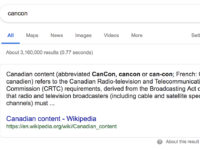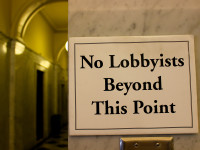Over the past several days, the Standing Committee on Canadian Heritage has repeatedly been told that Canadian cultural groups are among the strongest supporters of freedom of expression and would never think of supporting legislation that undermines that foundational democratic principle. Yet the reality is that some of the same cultural groups that now downplay the impact of Bill C-10 on expression, lobbied the government to remove all user generated content safeguards. In other words, rather than support freedom of expression for all Canadians, some envisioned full regulation of both users and their content.
Post Tagged with: "actra"
Hidden in Plain Sight?: The Search For Canadian Content on Netflix
The call for Internet and Netflix taxes are not the only demands raised by Canadian cultural groups regarding online video services. Many groups argue that the services should be required to make Canadian content more prominent, citing the challenge of “discoverability” of Canadian content in a world of seemingly unlimited choice. While the ACTRA call for government sanctions against search engines that refuse to prioritize Cancon in search results is an extreme example, many have asked the Broadcast and Telecommunications Legislative Review panel to either mandate that a certain percentage of the Netflix library consist of Canadian content or that it more actively promote Cancon on the service.
ACTRA Wants Government To Penalize Search Engines that Refuse to Promote Canadian Content in Search Results
The escalating battle being waged for new Internet taxes to fund Canadian content does not stop with proposals for new fees on Internet access and online video services. Cultural groups also want to increase the “discoverability” of Canadian content by mandating its inclusion in search results. According to the ACTRA submission to the broadcast and telecom legislative review panel, it has been calling for search engine regulation for the past 20 years:
ACTRA stated during the 1999 CRTC process that Internet search engines would become the gateway for consumers to access the vast array of entertainment and information now available from around the world. We argued then the CRTC should regulate them.
It now argues for mandated inclusion of Canadian content in search results for cultural content under threat of economic sanction:
The Daily Digital Lock Dissenter, Day 50: ACTRA
The choice of whether or not to use a TPM in connection with controlling access to a copyright protected work or which restricts copyright protected acts rests with rightsholders. Some will choose to use them, others will not. In accordance with the WIPO Treaties, rightsholders should have recourse against persons who deliberately circumvent their TPMs. By the same token, users who have legal access to a work should not be prevented by TPMs from availing themselves of statutory exceptions or limitations. Moreover, legal protection for TPMs should be subject to privacy, interoperability, and encryption research considerations, for example.










